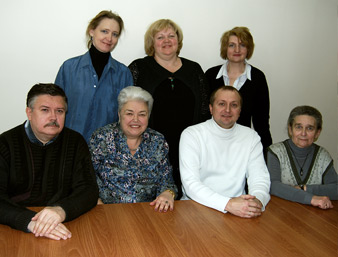
Детско-взрослая общность: преемственность идей коллективного воспитания в современном образовании
В статье обозначены важные для современного образования идеи коллективного воспитания. Дана сравнительная характеристика понятий «детский воспитательный коллектив» и «детско-взрослая общность». Под детско-взрослой общностью понимается первичная контактная группа детей и взрослых, возникающая вокруг сходных потребностей и интересов и осуществляющая пересечение ценностей и смыслов участников в общем эмоциональном переживании, совместной деятельности и общении. Выделены возможные тенденции коллективного воспитания в современном образовании: введение понятия детско-взрослой общности, ее со-бытийной характеристики как качественного признака воспитания в общности; изучение процессов обособления и отождествления школьника в общности; видение путей управления детским коллективом как социальной системы, при со-действующей позиции педагога в нем.
A child-adult community: implementation of collective social education ideas in education today
Collective social education is understood as conditions for students’ development in the process of peer interaction. Organizing a collaborative activity, a teacher provides conditions to build various connections and relationships which contribute to children’s development. Collective social education implies external conditions influencing internal processes of students’ self-assertion and self-development where students realize and reveal their subjective qualities, personal initiatives, and responsibility.
One of the areas of collective social education is a child-adult community as a form of interaction between adults and children. A child-adult community may be reveal itself in a form of a class, club, team, public association, subculture group, etc. A student can be involved in various communities and manifest himself differently in each particular case. A child-adult community can be an organized child collective or a random group, forming around an interesting task or an enthusiastic adult. It may last long or just one or several days.
The 1990s in Russia witnessed significant changes in the process of social education of schoolchildren and youth: the national ideological determinant was gone; the government’s demand became rather vague; pedagogical theories of child-centered social education gained more weight. However, it is hard to imagine the process of character building and personality development without interaction with other people.




